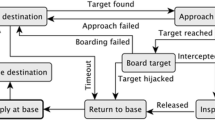Abstract
The common discourse on intellectual property rights rests mainly on utilitarian ground, with implications on the question of justice as well as moral significance. It runs like this: Intellectual property rights are to reward the originators for his/her intellectual labour mainly in monetary terms, thereby providing incentives for originators to engage in future innovative labouring. Without such incentives, few, if not none, will engage in creative activities and the whole human community will, thereby, suffer because of reduced inventions. However, such utilitarian argument on piracy as de-motivation may not be necessarily justified. In fact, intellectual property arrangement is one among different institutions concerning how the society may handle new ideas and creative works. In reality, private ownership over one’s intellectual product is merely a modern western concept that is being ‹advertised’ as being normative, which, by itself, is highly debatable. Alarming still, such normative argument assumes both justness and moral dimensions. This article will analyse whether such argument is philosophically sound.
Similar content being viewed by others
References
Alford, W.P. (1993). ‹Don’t Stop Thinking About… Yesterday: Why There was No Indigenous Counterpart to Intellectual Property Law in Imperial China’. Journal of Chinese Law, 7, 3–34
Bell, D. A.: 2003, ‹Confucian Constraints on Property Rights’, in D. A. Bell and H. Chaibong (eds.), Confucianism for the Modern World (Cambridge University Press, Cambridge), pp. 218–235
Cheng, Chung-ying (2003) ‹Dao (Tao): The Way’. In Antonio S. Cua (ed.) Encyclopedia of Chinese Philosophy. New York: Routledge. pp. 202–206
Child, J.W. (1997). ‹The Moral Foundations of Intangible Property’. In Adam D Moore (ed.) Intellectual Property: Moral, Legal and Intellectual Dilemmas . Maryland: Rowan & Littlefield. pp. 57–80
Halbert, D.J. (2005). Resisting Intellectual Property. Oxon: Routledge
Hamilton, M.A. (1997). The TRIPS Agreements Imperialistic Outdated and Overprotective. In Adam D Moore (ed.) Intellectual Property: Moral, Legal and Intellectual Dilemmas Maryland: Rowan & Littlefield. pp. 243–268
Heller, Michael A.and Eisenberg, Rebecca S. (1998). ‹Can Patents Deter Innovation? The Anticommons in Biomedical Research. Science 280:698–701
Hettinger, E.C. (1997). ‹Justifying Intellectual Property’. In Adam D Moore (Ed.) Intellectual Property: Moral, Legal and Intellectual Dilemmas. Maryland: Rowan & Littlefield. pp. 17–38
Hughes, J. (1988). The Philosophy of Intellectual Property. The Georgetown Law Journal, 77(2), 287–366
Ivanhoe, P. J.: 2005, ‹Intellectual Property and Traditional Chinese Culture’ in J. K. Campbell, M. O’Rourke and D. Shier (eds.), Law and Social Justice (MIT Press, Massachusetts), pp. 125–142
Lehman, J.A. (2006). Intellectual Property Rights and Chinese Tradition Section: Philosophical Foundations. Journal of Business Ethics, 69, 1–9. doi:10.1007/s10551-006-9059-8
Locke, J. (1986). The Second Treatise on Civil Government. New York: Prometheus Books
Miller, D. (1976). Social Justice. Oxford: Claredon Press
Yung, B. (2007). ‹An Interplay between Western and Confucian Concepts of Justice: Development of Hong Kong Housing Policy’, Housing. Theory and Society, 24(2), 111–132
Acknowledgements
I would like to thank Dr. Lee Fung Ping for her stimulating discussion with me on this topic before my drafting of this paper. I am grateful to Dr. Sima Sengupta for critical reading and editing of this paper.
Author information
Authors and Affiliations
Corresponding author
Rights and permissions
About this article
Cite this article
Yung, B. Reflecting on the Common Discourse on Piracy and Intellectual Property Rights: A Divergent Perspective. J Bus Ethics 87, 45–57 (2009). https://doi.org/10.1007/s10551-008-9869-y
Received:
Accepted:
Published:
Issue Date:
DOI: https://doi.org/10.1007/s10551-008-9869-y




